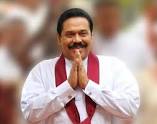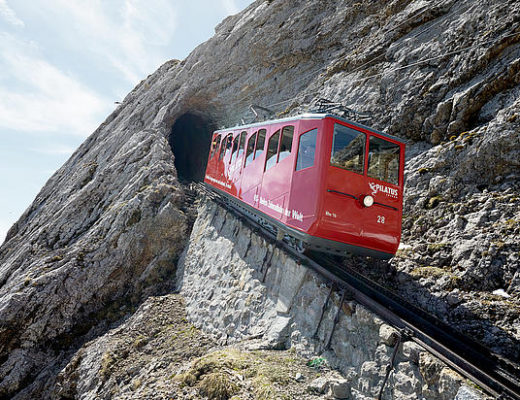In the 1970s, the trend was for young Sri Lankan doctors to seek greener pastures abroad. They left Sri Lanka for many reasons, causing a brain drain from the country. In 1985, one such doctor, Nihal Gurusinghe, became the first Sri Lankan to be appointed as a Consultant Neurosurgeon in the UK, and more recently, he was conferred the title of Professor of Clinical Neurosurgery by The University of Central Lancashire, thus becoming the first ever Sri Lankan Consultant Neurosurgeonto achieve this honour in the field of Neurosurgery in the UK.
Nihal Gurusinghe, qualified as a medic with honours in 1970, from the Faculty of Medicine, in Colombo. As a medical student, he admired Dr. Darrel Weiman, Consultant Neurosurgeon, for his flair, dynamic personality and surgical skills. The foundation for surgical skills was laid, while Nihal worked as an interne House with the late Professor R.A. Navaratne at the General Hospital, Colombo.
Punishment or destiny?
In 1972, while working at the Accident Service Unit at the Colombo General Hospital, Nihal attended to a young boy of 11, who had sustained serious injuries after falling from a tree and was treated in the ICU. While the patient was in the Intensive Care Unit, he had to impose hospital regulations restricting visiting hours, as per hospital regulations, which affected one of the injured boy’s best friends, whose father attempted to enter the ICU throwing his weight about being a big wig in the Ministry of Health.
As a consequence, Nihal received a transfer order from the Ministry of Health, without being given any opportunity to show cause for his actions to report to Padaviya, as a punishment, within 24 hours. Subsequently, Professor Rajasuriya, the then Director of Health Services after personal intervention and studying the full facts behind the incident annulled the transfer. However, distastefulness of the incident managed to dishearten and disappoint Gurusinghe to the core. Ironically, after the indecorous incident he was appointed as a House Officer to the Neurosurgery Department at the General Hospital, Colombo to work with Dr. Darrell Weiman. However, by that time degrading politics had imploded within him that Nihal Gurusinghe had made up his mind to quit the Government Medical Service.
Subsequently, an imposition in the form of having to work as a doctor for full five years, including his internship period, came upon him thus restricting him from leaving the country. Consequently, he had to sign an agreement to that effect. There was a compulsory ban on all Government medical doctors to serve a minimum period of five years, prior to leaving the country, followed as a consequence of this state of affairs.
In the meanwhile, a General Practitioner at a private hospital in Matara offered Nihal Gurusinghe a position as a doctor, but his resolve to become a Neurosurgeon continued to work on his mind.
At the end of his 5-year agreement, he had signed, and he was exempted from any trusses from the Ministry of Health Nihal decided to go to the UK to for further qualifications and status in surgery. He had to face another hurdle due to the fact that his application to leave Sri Lanka was declined even though he had abided by the signed agreement. Such experiences further confirmed in his mind the supremacy that existed in the Health Department.
Providence works wonderfully according to one’s previous karma, according to Buddhism. Proving such a theory, once he had to see a patient at the Matara Clinic, who happened to be none other than the young and dynamic Member of Parliament for the Beliatta constituency, Mahinda Rajapaksa.

After seemingly building up of a rapport between the doctor and patient, Nihal Gurusinghe casually mentioned to Mahinda Rajapaksa about his situation. The young and the spirited Rajapaksa consented to assist him in the matter and consented to accompany Nihal Gurusinghe to Colombo and to explain to the Deputy Minister of Health, the complete history surrounding his case.
The Deputy Minister happened to be a rational minded person, who after listening to the whole saga cancelled all the impending restrictions on his travel abroad. Yet, there existed another hurdle to cross with regard to his export permit, a procedure that had been imposed on all Sri Lankans to adhere prior to leaving the country. Thanks to the positive and prompt actions by the Permanent Secretary to the Ministry of Justice, that obstacle too was resolved and Nihal Gurusinghe received an official telegram, just in the nick of time to leave Sri Lanka. Finally, Dr. Nihal Gurusinghe left Sri Lanka in December 1975.
In the UK
In 1976, he took up a position as Senior House Officer (SHO) in General Surgery at St. Anne’s General Hospital in London. In 1977, he finally achieved his ambition to begin his career in Neurosurgery as SHO at the Atkinson Morley’s Hospital in Wimbledon. In 1980, he was recognized as a Fellow of the Royal College of Surgeons, Edinburgh, which followed the appointment of the prestigious post of Senior Registrar at Atkinson Morley’s Hospital, The National Hospital, Queen’s Square, London, and The Great Ormond Hospital for Sick Children. In 1985, he became a Consultant Neurosurgeon at The Lancashire Teaching Hospital, NHS Trust, to be the first Sri Lankan to hold such a position. Seemingly, he built up a very successful career both in Preston, as well as throughout the UK, particularly in brain aneurysms. He is now one of the most experienced neurosurgeons in the UK, and immensely respected for his surgical skills.
Furthermore, Nihal Gurusinghe has made an enormous contribution to British Neurosurgical practice in his role as a member of the Executive Council of the Society of British Neurological Surgeons (SBNS), by being the Honorary Secretary of the Society from 2000-2004. At present, he acts as coordinator for NICE guidelines.
He has been closely involved with the SBNS and the Royal Colleges of Surgeons in the training of Neurosurgeons in the UK by being on the Specialist Advisory Committee for Neurosurgery and in the National Selection Panel. He also serves as an Examiner for the Intercollegiate FRCS (Surgical Neurology), in the UK. He once Chaired the Specialist Advisory Board, advising the Council of the Royal College of Surgeons, Edinburgh and served on the Board for the International FRCS (Neurosurgery).He is an Examiner for the Conjoint FRCS (Neurosurgery), conducted by the Royal Colleges of Surgeons for Edinburgh, Hong Kong, and Singapore, and acts as an International Examiner.
Brain Research Foundation
Amongst his many fulfilled achievements, Nihal Gurusinghe established the Sydney Driscoll Neuroscience Foundation in 1989 (named after the patient, who donated money) at Preston Hospital that provides financial support for education and research. The Foundation works closely with the University of Central Lancashire (UCLAN) to perform research work aimed at finding a cure forbrain cancer.
Paying back
Dr. Nihal Gurusinghe has trained many Sri Lankan neurosurgeons, including Dr. Sunil Perera, who is a leading figure in Neurosurgery in this country. Nihal encouraged Sunil Perera to set up the Neurosurgical Association of Sri Lanka (NSASL) and remains an active member providing advice from his vast experience in clinical work, training and the development of services.
A historic event took place in February 2018, which enhanced Sri Lanka’s international profile in Neurosurgerywhen the first ever International FRCS in Neurosurgery examination was held in Colombo,under the banner of the NSASL and the College of Surgeons of Sri Lanka, with enormous support from the Asiri Central Hospital. This was possible because of Nihal’s connections with the UK Royal Colleges and the NSASL.
Perhaps someday, Prof. Nihal Gurusinghe will return to Sri Lanka to serve his country of birth.
Pic: taken by the writer.






